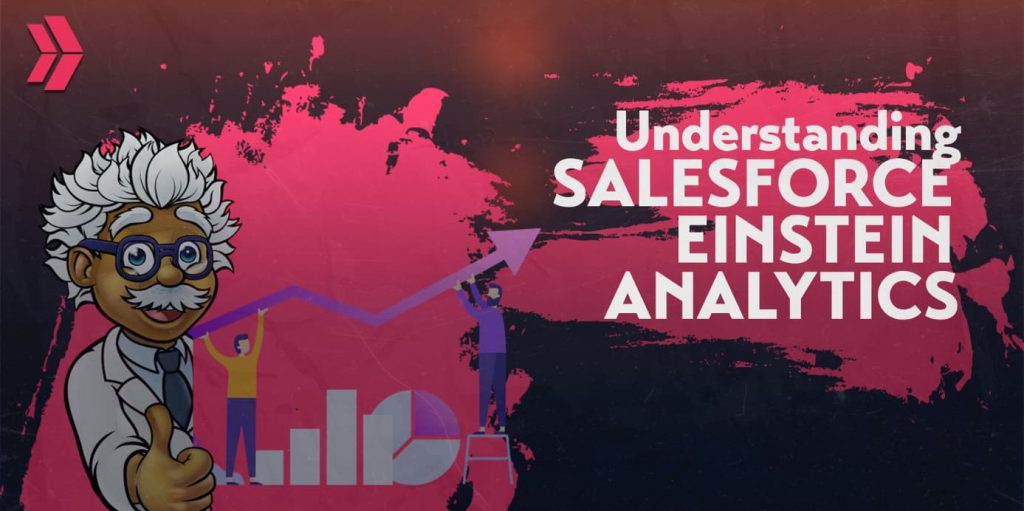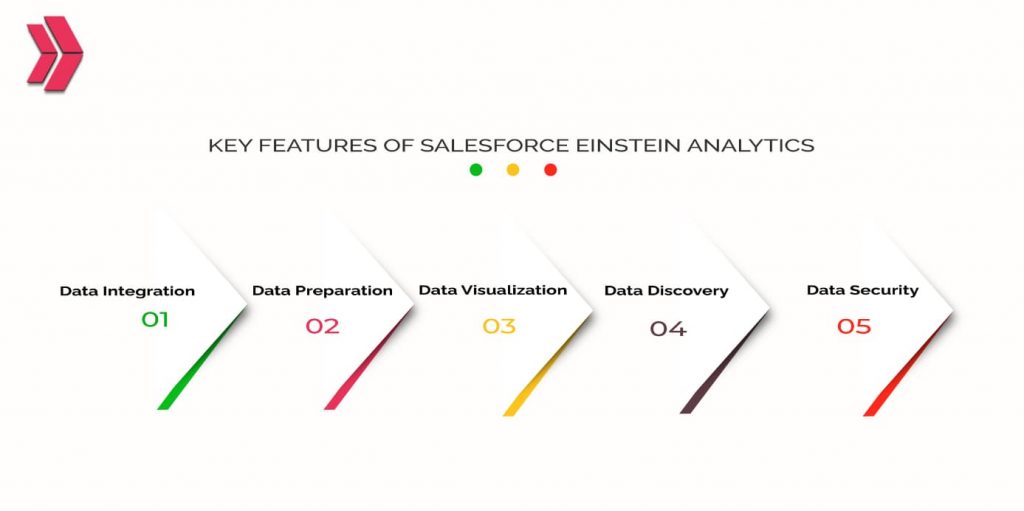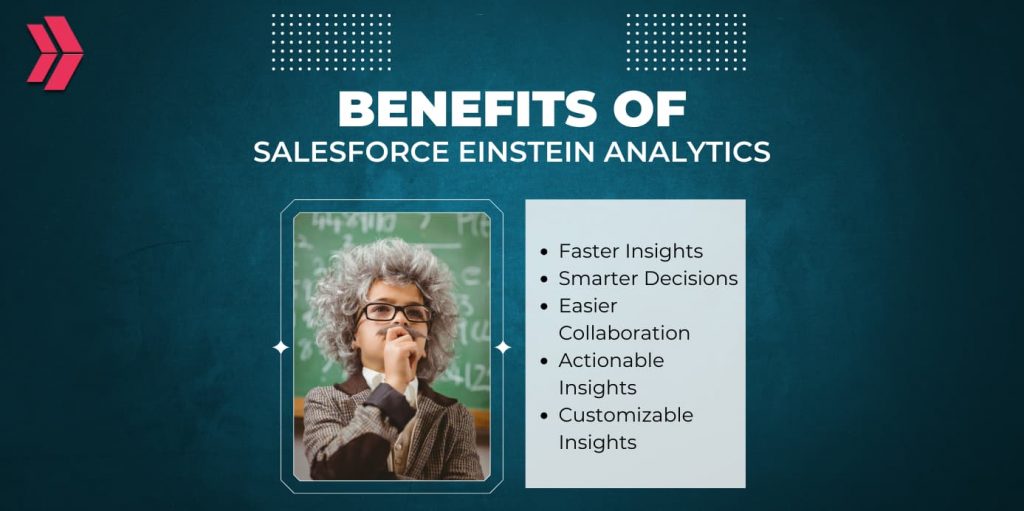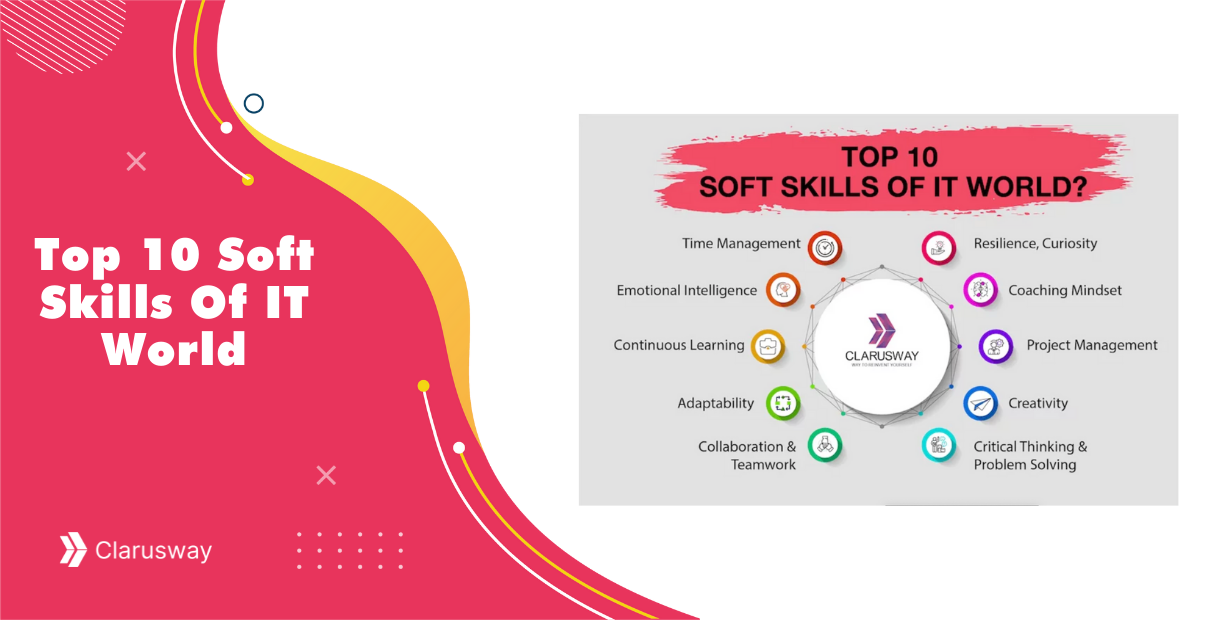In today’s data-driven business landscape, the ability to learn from data, understand its nuances, and prepare for future trends is not just an advantage; it’s a necessity. Salesforce Einstein Analytics emerges as a pivotal tool in this context, offering a platform where learning from complex data becomes intuitive, understanding hidden patterns becomes straightforward, and preparing actionable business strategies becomes a data-informed process.
Based on 3,706 customer interviews in the United States, Canada, the United Kingdom, Germany, France, Australia, Singapore, Japan, and Brazil, a study conducted in 2022 determined that the rate at which businesses can gain insights increased by 29% thanks to Einstein Analytics.
This blog post delves into the world of Salesforce Einstein Analytics, exploring its capabilities to transform raw data into valuable insights. Whether you’re new to the realm of analytics or looking to deepen your expertise, this journey through Einstein Analytics will equip you with the knowledge to harness its full potential for your business needs.

What is Salesforce Einstein Analytics?
Salesforce Einstein Analytics is a powerful tool designed to assist in analyzing data for improved business insights. It caters to users of varying expertise levels, allowing them to extract patterns and trends from a diverse range of data sources.
How Does Salesforce Einstein Analytics Enhance Business Insights?
A study in 2022, involving 3,706 customer interviews across multiple countries, revealed that Einstein Analytics boosted the rate of gaining business insights by 29%.
What are the Key Features of Salesforce Einstein Analytics?
Salesforce Einstein Analytics offers many features that render it a robust and versatile analytics platform. Here are 5 main features of Einstein Analytics:
- Data Integration
- Data Preparation
- Data Visualization
- Data Discovery
- Data Security

Data Integration
This feature allows integration with various sources like Salesforce objects, external databases, and web services, facilitating data transformation and aggregation.
Data Preparation
Dataflows automate the extract, transform, and load (ETL) process into datasets optimized for analytics, aiding in tasks like data deduplication and normalization.
Data Visualization
Interactive exploration is enabled through lenses, which allow for customizable monitoring using charts, tables, and maps derived from datasets.
Data Discovery (Einstein Discovery)
AI and ML techniques are applied to data to generate predictions and recommendations, improving outcome variables and performance optimization.
Data Security
Controls access to data based on user profiles or roles, employing encryption for data protection both in transit and at rest.
What are the Benefits of Salesforce Einstein Analytics?
Salesforce Einstein Analytics provides many benefits for users who want to gain deeper insights from their data. Here are the 5 benefits of Salesforce Einstein Analytics:
- Faster Insights
- Smarter Decisions
- Easier Collaboration
- Actionable Insights
- Customizable Insights

Faster Insights
Real-time data analysis and AI/ML-aided automation facilitate quick insight generation accessible from any device.
Smarter Decisions
Interactive visualizations and AI/ML-driven pattern recognition assist in making informed decisions based on comprehensive data analysis.
Easier Collaboration
Insights can be shared through embedded dashboards or reports, with added functionalities for annotations and integration with other applications like Salesforce CRM or Tableau.
Actionable Insights
Anticipates future trends to guide decision-making, with direct execution of actions from dashboards or reports.
Customizable Insights
Tailor data analysis and visualization to individual needs, with options for custom application and component development.
How Much Does Einstein Analytics Cost?
Einstein Analytics offers different plans based on required features and functionalities. Here are the Einstein (CRM) Analytics pricing structure:
| Einstein Predictions | CRM Analytics Growth | CRM Analytics Plus | Revenue Intelligence |
| $ 75 | $ 140 | $ 165 | $ 250 |
How Can Businesses Leverage Salesforce Einstein Analytics for Success?
Salesforce Einstein Analytics facilitates the connection of data sources and the creation of dynamic dashboards for data exploration and visualization, enhancing team collaboration and business decision-making.
What are the Use Cases of Salesforce Einstein Analytics?
Einstein Analytics finds applications in various sectors, including:
- Sales Analytics
- Service Analytics
- Marketing Analytics
- Financial Services Analytics
- Healthcare Analytics
Each area utilizes specific metrics and analyses to improve performance and outcomes.
What Job Opportunities Exist in Salesforce Einstein Analytics?
The demand for roles in Salesforce Einstein Analytics is high, with salaries ranging between $76,000 and $125,000. Key roles include:
- Salesforce Einstein Analytics Developer
- Salesforce Einstein Analytics Consultant
- Salesforce Einstein Analytics Administrator
For more information you can check our “Can You Get A Job In Salesforce Without Experience?” blog post titled.
What Certification and Training Options are Available for Salesforce Einstein Analytics?
To showcase expertise in Salesforce Einstein Analytics, several certifications are available, including:
- Tableau CRM & Einstein Discovery Consultant
- Einstein Analytics and Discovery Insights Specialist
These certifications require comprehensive training, which can be pursued through the Salesforce Einstein Analytics Trailhead, classes, workshops, and practice tests.For a detailed roadmap on navigating these certifications, the Salesforce certifications guide offers invaluable resources and guidance, helping candidates to systematically prepare for and excel in their certification exams.
What is the Difference Between Tableau and Einstein Analytics (Tableau CRM)?
Though both owned by Salesforce, Tableau and Einstein Analytics serve different purposes:
- Tableau: Specializes in on-premises and cloud data visualization.
- Einstein Analytics (Tableau CRM): Integrates with Salesforce CRM for data dashboard creation and insight generation.
They differ in data source compatibility, data preparation tools, exploration interfaces, analysis features, and data sharing options. This distinction underscores the diverse range of Salesforce products, each designed to cater to specific business needs while seamlessly integrating within the broader Salesforce ecosystem.




